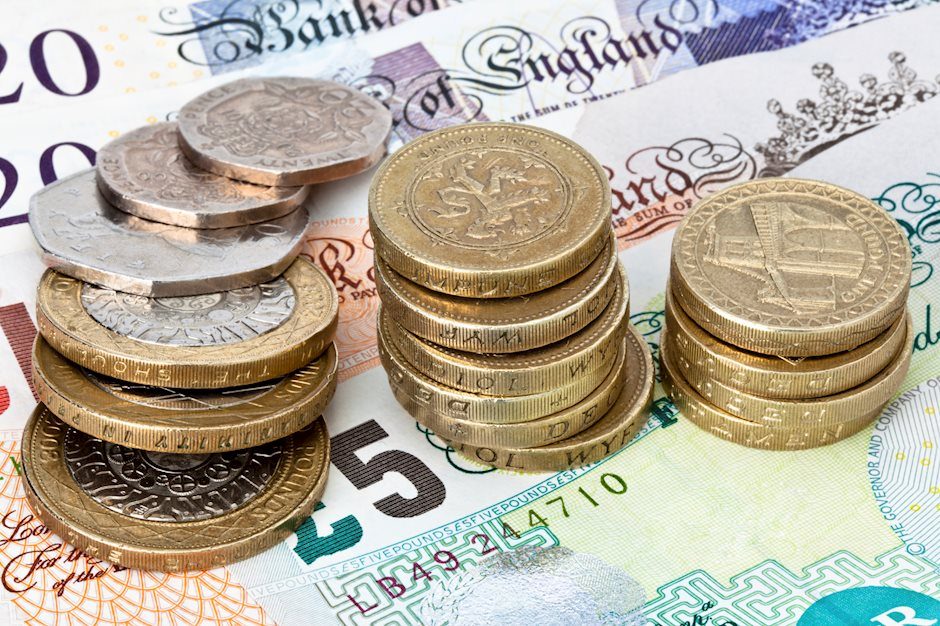Pound Sterling drops as BoE's bigger rate hike threatens growth prospects
- Pound Sterling has dropped as a fat interest rate hike by the BoE has threatened UK's economic outlook.
- Fresh highs by United Kingdom's core inflation forced the BoE to raise interest rates surprisingly by 50 bps to 5%.
- UK households are going to face purchasing power constraints due to 8.7% inflation vs. 6% earnings rate.

The Pound Sterling (GBP) has faced selling pressure as the ultra-hawkish interest rate decision by the Bank of England (BoE) is going to impact economic activities. The GBP/USD pair has dropped as BoE Governor Andrew Bailey has surprisingly raised interest rates by 50 basis points to 5% considering the severe persistence in United Kingdom inflation.
United Kingdom’s inflation remained hotter than expected in May as labor market conditions have tightened further and food price inflation has not peaked yet. Meanwhile, UK’s core inflation has printed a fresh new high of 7.1%, which has tilted expectations of market participants in favor of a fat interest rate hike from the central bank.
Daily digest market movers: Pound Sterling drops despite extremely hawkish BoE
- The BoE has unexpectedly raised interest rates by 50 basis points (bps) to 5%.
- A bulky rate hike by the BoE is going to threaten the economic outlook.
- The central bank went with a bigger hike as UK’s May inflation data has turned out to be more persistent.
- UK inflation figures were surprisingly higher than expectations as monthly headline CPI for May expanded at a pace of 0.7%, matched April’s pace but remained higher than the estimated speed of 0.5%.
- Annualized headline inflation remained steady at 8.7% while the market was anticipating a deceleration to 8.4%. While core UK CPI that excludes oil and food prices printed a fresh high of 7.1% versus expectations of steady performance.
- UK households are going to face high pressure amid a wide deviation between 8.7% inflation and 6% earnings rate.
- Hot inflation numbers seem uncomfortable for UK PM Rishi Sunak and BoE Governor Andrew Bailey as the former promised to halve inflation by year-end and investors believe that the latter is failing to do justice with his job of achieving price stability.
- UK FM Jeremy Hunt is reluctant to cut taxes as it could propel already elevated inflationary pressures and would undermine the impact of hawkish monetary policy.
- A pullback move in the US Dollar Index could be faded as Federal Reserve (Fed) policymakers delivered dovish commentary.
- Atlanta Fed President Raphael Bostic cited that the central bank should not raise interest rates further or it would risk "needlessly" sapping the strength of the economy.
- Chicago Fed Bank President Austan Goolsbee favored allowing current interest rates the required time to show their impact on the economy.
- As per the CME Fedwatch tool, more than 70% chances are still in favor of a 25 bps interest rate hike in July to 5.25-5.50%.
- Fed Chair Jerome Powell cited in his testimony at Congress that bringing down inflation to 2% has a long way to go.
- Jerome Powell also confirmed that all policymakers have agreed that more rate hikes are required this year.
Technical Analysis: Pound Sterling shows broader volatility contraction
Pound Sterling has faced selling pressure above the round-level resistance of 1.2800. The corrective move in the Cable has found intermediate support near the 10-period daily Exponential Moving Average (EMA) at 1.2700. Broadly, the Pound Sterling is approaching north in a Rising Channel chart pattern in which each pullback is considered a buying opportunity by the market participants.
Bullish bias for the Cable would strengthen if it manages to climb above the fresh annual high around 1.2850. The bullish bias could be faded if Cable drops below the previous month’s high around 1.2669.
Pound Sterling FAQs
What is the Pound Sterling?
The Pound Sterling (GBP) is the oldest currency in the world (886 AD) and the official currency of the United Kingdom. It is the fourth most traded unit for foreign exchange (FX) in the world, accounting for 12% of all transactions, averaging $630 billion a day, according to 2022 data.
Its key trading pairs are GBP/USD, aka ‘Cable’, which accounts for 11% of FX, GBP/JPY, or the ‘Dragon’ as it is known by traders (3%), and EUR/GBP (2%). The Pound Sterling is issued by the Bank of England (BoE).
How do the decisions of the Bank of England impact on the Pound Sterling?
The single most important factor influencing the value of the Pound Sterling is monetary policy decided by the Bank of England. The BoE bases its decisions on whether it has achieved its primary goal of “price stability” – a steady inflation rate of around 2%. Its primary tool for achieving this is the adjustment of interest rates.
When inflation is too high, the BoE will try to rein it in by raising interest rates, making it more expensive for people and businesses to access credit. This is generally positive for GBP, as higher interest rates make the UK a more attractive place for global investors to park their money.
When inflation falls too low it is a sign economic growth is slowing. In this scenario, the BoE will consider lowering interest rates to cheapen credit so businesses will borrow more to invest in growth-generating projects.
How does economic data influence the value of the Pound?
Data releases gauge the health of the economy and can impact the value of the Pound Sterling. Indicators such as GDP, Manufacturing and Services PMIs, and employment can all influence the direction of the GBP.
A strong economy is good for Sterling. Not only does it attract more foreign investment but it may encourage the BoE to put up interest rates, which will directly strengthen GBP. Otherwise, if economic data is weak, the Pound Sterling is likely to fall.
How does the Trade Balance impact the Pound?
Another significant data release for the Pound Sterling is the Trade Balance. This indicator measures the difference between what a country earns from its exports and what it spends on imports over a given period.
If a country produces highly sought-after exports, its currency will benefit purely from the extra demand created from foreign buyers seeking to purchase these goods. Therefore, a positive net Trade Balance strengthens a currency and vice versa for a negative balance.
Author

Sagar Dua
FXStreet
Sagar Dua is associated with the financial markets from his college days. Along with pursuing post-graduation in Commerce in 2014, he started his markets training with chart analysis.

















